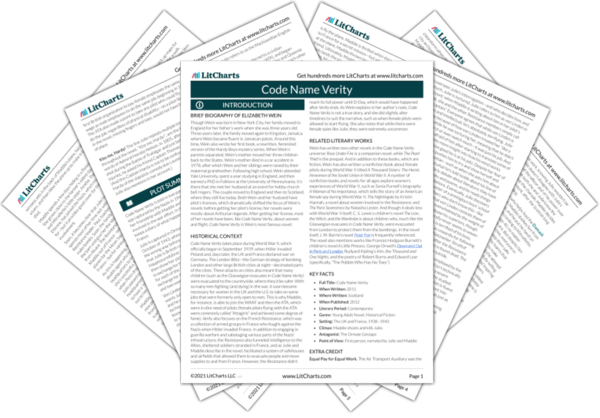To some degree, Maddie’s working-class upbringing does hinder her. But the friends she makes at Oakway make it possible for Maddie to get her pilot’s license—seemingly without any thought for the fact that Maddie is female. Again, World War II looms large over Maddie’s journey to becoming a pilot. It’s impossible for her to ignore that she only gets training because the Civil Air Guard is starting to prepare pilots for impending war. And then, the war seems poised to dash Maddie’s dreams when Britain grounds civilian aircrafts. The implication is that, as a woman, Maddie will never be able to fly for the military.


